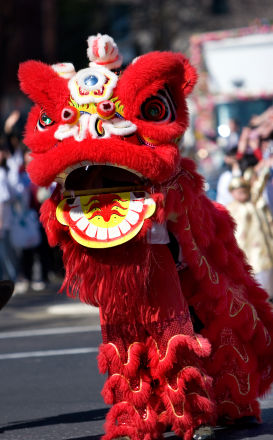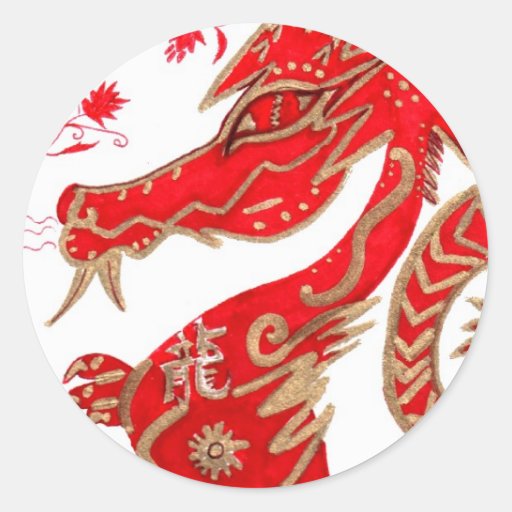Dragon In Chinese Biography
Source(google.com.pk)
In the spring of 1852, a rather plain 16-year-old was part of a line-up of women, waiting to be chosen as a concubine by the Emperor. She came from a distinguished Manchu family; her great-grandfather had been one of the keepers of the silver reserves at the imperial court. But the youngster had grown up in a family saddled with debt. Her future husband's father, Emperor Daoguang, had in the aftermath of the ruinous Opium War, insisted that all past officials of the previous 44 years make up for nine million taels missing from the state coffers because of embezzlement by the corrupt among them. The emperor had arbitrarily decreed that the descendants of the officials be responsible for making up the loss to the exchequer.
As a result, from the age of 11, the young girl had taken sewing jobs to earn money to aid the family's efforts to have her grandfather released from jail. Despite her youth, the young girl advised her father on how best to raise funds. "Her ideas were carefully considered and practical: what possessions to sell, what valuables to pawn, whom to turn to for loans," writes Jung Chang in her multi-storyed biography of the young girl who became the Dowager Empress Cixi and would, in effect, rule China for the better part of half a century. After the family raised enough money to have her grandfather released, her father remarked that his eldest daughter was "really more like a son".
The rise of this young girl to become empress of the largest country in the world, who ruled during a tumultuous half century that would see a slicing up of parts of China like so many pieces of a melon by Britain, Japan, Germany and Russia but also, thanks to Cixi, the first push by China towards opening up trade and establishing a currency, is one of the most improbable in history. Jung Chang's dramatic telling of Cixi's story is not unlike Shekhar Kapur's biopic, Elizabeth. Conspiracies were being hatched in every corner of the palace by a cast of characters with names like Wild Fox Kang who colluded with the Japanese late in her reign to conspire with her adopted son, Emperor Guangxu, to kill her.
The twist of fate that catapulted her from a concubine to the second-most important woman in the emperor's harem was that Cixi gave birth to her husband's first son in 1856. After her husband died, Cixi allied with Empress Zhen and the two women brought about a bloodless coup, taking away power from a board of eight men and ruling in the name of her son.
Cixi's rule featured the medieval barbarism of eunuchs being beaten to death with bats and poisonings with arsenic coupled with approaches to diplomacy and managing trade with the outside world that seem more far-sighted and pragmatic than those pursued by the British in India at that time - the mid to late nineteenth century - or, for that matter, most of our economic mandarins today. In this sense, Cixi was a split personality, thoroughly modern in many ways but capable of being a medieval tyrant. In 1908, the last year of her life, worried that her adopted son, Emperor Guangxu, would outlive her and hand over China to Japan, she sent baskets of food to his sick bed. They were accompanied by greetings of maternal love but among the ingredients were hefty doses of arsenic.
Despite the backdrop of the unfair treaties imposed on China by Britain after the Opium War that might have made any Chinese ruler xenophobic, Jung Chang stresses that Cixi sought to build bridges to the West and learn the new rules of international trade. Her regime appointed as the head of its customs a 28-year-old Ulsterman, Robert Hart. The credo "Make China Strong" was expanded to incorporate "Make the Chinese Rich". It was now the consensus in Cixi's circle that "China's weakness lies with its long-standing poverty" and it could only become wealthy through Western-style industrial projects." The telegraph was introduced. Coins replaced silver ingots as currency and in 1875 modern coal-mining was initiated in two places and eventually electricity. Aside from such state projects, she ruled that "private businessmen should be allowed to issue shares." In further proof of her open-mindedness, she appointed Abraham Lincoln's envoy to China as a foreign minister to mend relations with the West.
Inevitably, for someone who ruled that long Cixi made some poor decisions - notably by siding with Boxer rebels and declaring war against the foreign powers in 1900. Cixi was forced to flee with the emperor; the most moving passages of the book describe her gratitude upon receiving a bowl of gruel and three boiled eggs a local chieftain has managed to find for her. Yet, she returned to the throne and, despite China's weakness, her government made plans from 1905 on to allow people to vote. "England is one of the great powers of the world, but this has not been brought about by Queen Victoria's rule. She had the able men of parliament (at) the back of her at all times and they discussed everything until the best result was obtained," Cixi observed. In China by contrast, "I have 400,000,000 all dependent on my judgment." China's current Communist leadership would not have the courage to articulate the paradox of ruling through dictatorship in such bold terms.
There is not space here to do justice to all the twists and turns of Cixi and China's story. As Chang did in her powerful indictment of Mao in a biography several years ago, she occasionally rams her thesis home, seeking to absolve Cixi even of her missteps and crimes. But, Jung Chang makes a compelling case that China's modernisation started with Cixi, long before Sun Yat-sen and Chairman Mao. Among many tributes to Cixi's sagacity, one by an American missionary living in China at the time rings especially true. "Her courage was such that she did not hesitate to drive the chariot of state over many a new and untried road," said W A P. Martin. "It is safe to assert that more sweeping reforms have been decreed in China than were ever enacted in a half century by any other country," other than revolutionary France and Japan during the Meiji Restoration. It is a big claim, but it is Jung Chang's achievement that it seems an entirely appropriate one. From beginning to end, she succeeds in writing, in the best sense of the term, a revisionist biography of the Empress.
Dragon In Chinese Chinese Dragon Tattoo Head Dance Symbol Drawing Pictures Parade Costume Mask Images

Dragon In Chinese Chinese Dragon Tattoo Head Dance Symbol Drawing Pictures Parade Costume Mask Images

Dragon In Chinese Chinese Dragon Tattoo Head Dance Symbol Drawing Pictures Parade Costume Mask Images
Dragon In Chinese Chinese Dragon Tattoo Head Dance Symbol Drawing Pictures Parade Costume Mask Images

Dragon In Chinese Chinese Dragon Tattoo Head Dance Symbol Drawing Pictures Parade Costume Mask Images

Dragon In Chinese Chinese Dragon Tattoo Head Dance Symbol Drawing Pictures Parade Costume Mask Images

Dragon In Chinese Chinese Dragon Tattoo Head Dance Symbol Drawing Pictures Parade Costume Mask Images

Dragon In Chinese Chinese Dragon Tattoo Head Dance Symbol Drawing Pictures Parade Costume Mask Images

Dragon In Chinese Chinese Dragon Tattoo Head Dance Symbol Drawing Pictures Parade Costume Mask Images

Dragon In Chinese Chinese Dragon Tattoo Head Dance Symbol Drawing Pictures Parade Costume Mask Images

Dragon In Chinese Chinese Dragon Tattoo Head Dance Symbol Drawing Pictures Parade Costume Mask Images
No comments:
Post a Comment